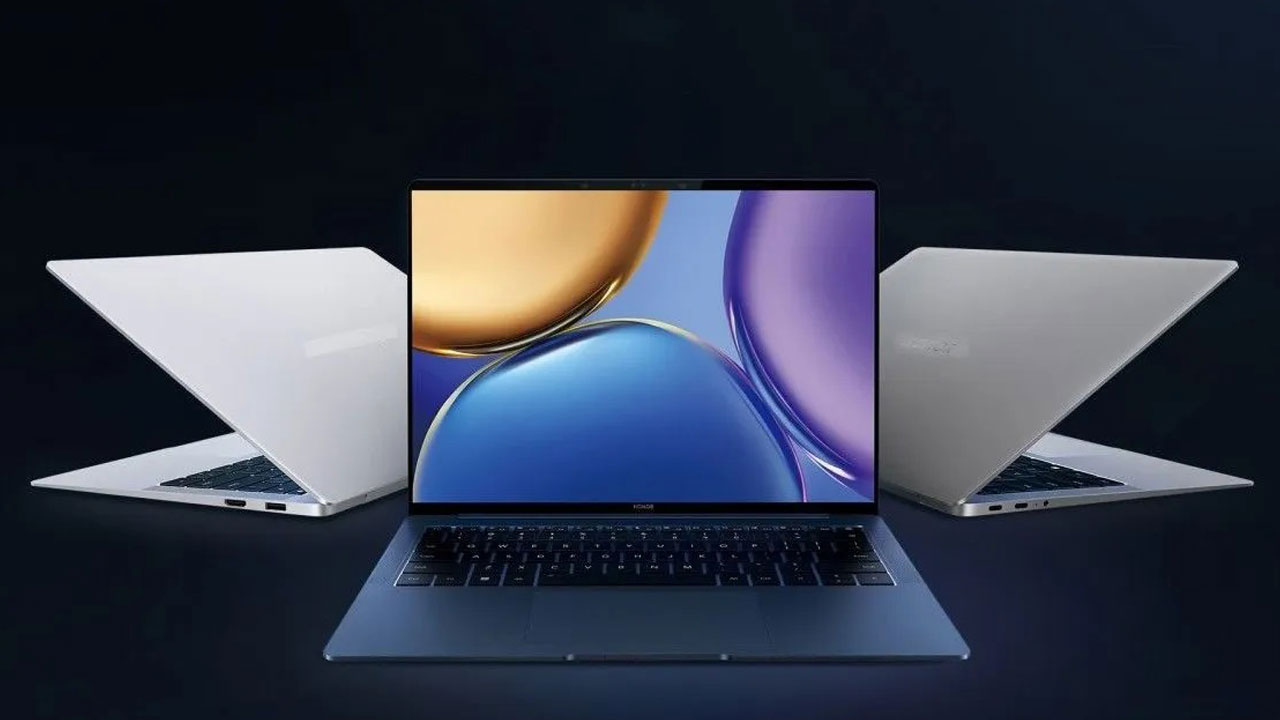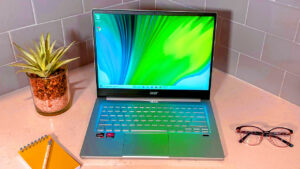Laptops are portable computers that are designed to be used while on the move. They typically have a thinner and lighter form factor than desktop computers and are designed to be used while being carried around. Laptops typically have a built-in keyboard and touchpad, and they may also have a touchscreen display. They are powered by a rechargeable battery and can run for several hours on a single charge, depending on the model and the usage. Laptops are available in a wide range of sizes, prices, and specifications, and they can be used for a variety of purposes, such as for work, school, entertainment, and more. Is there anything specific you would like to know about laptops?
Here are a few more things you might want to know about laptops:
- Processor: The processor, or “CPU,” is the brain of the laptop. It handles all of the instructions that the computer receives and carries out. Higher-end processors will be able to handle more complex tasks faster than lower-end processors.
- Memory (RAM): Memory, or random access memory (RAM), is used by the computer to store data that it is currently working on or using. More RAM allows the computer to have more data available to it at any given time, which can make it run more smoothly.
- Storage (HDD or SSD): Storage is where all of the data on your computer is stored, including your operating system, programs, and files. Laptops can have either a hard disk drive (HDD) or a solid state drive (SSD) for storage. SSDs are generally faster and more reliable than HDDs, but they are also more expensive.
- Graphics: The graphics processor, or GPU, is responsible for rendering images and video on your computer. Higher-end GPUs will be able to handle more complex graphics and run games at higher frame rates.
- Ports: Laptops have a variety of ports that allow you to connect external devices, such as a mouse, keyboard, or printer. Common ports include USB, HDMI, and audio jack.
- Size and weight: Laptops come in a range of sizes, from small, ultra-portable models to larger ones with a bigger screen and more powerful components. The size and weight of a laptop can be an important consideration if you plan to take it with you on the go.
- Price: Laptops can range in price from a few hundred dollars to several thousand dollars, depending on the specifications and features. It’s important to consider what you’ll be using the laptop for and how much you’re willing to spend before making a purchase.
Laptops can be very useful for students for a number of reasons:
- Portability: Laptops are portable computers that can be taken with you just about anywhere, making them convenient for students who need to work on the go.
- Versatility: Laptops can be used for a wide variety of purposes, such as writing papers, researching and studying, taking notes, and more.
- Collaboration: Laptops allow students to easily share and collaborate on projects with classmates.
- Online access: Most laptops have built-in WiFi, allowing students to easily access the internet and online resources from just about anywhere.
- Flexibility: Laptops allow students to work from a variety of locations, such as the library, a cafe, or even from their dorm room.
Overall, laptops can be a very useful tool for students, helping them to stay organized, connected, and productive.
There is no one “best” laptop for all students, as the needs of each student will vary depending on their specific requirements and preferences. However, here are a few things to consider when looking for a laptop as a student:
- Processor: Look for a laptop with a modern processor, such as an Intel Core i5 or i7, or an AMD Ryzen 5 or 7. These processors will provide good performance for a variety of tasks, including word processing, web browsing, and light gaming.
- Memory (RAM): Aim for at least 8GB of RAM, which should be sufficient for most student needs. If you plan to do a lot of video editing or other resource-intensive tasks, you may want to consider a laptop with 16GB or more of RAM.
- Storage (HDD or SSD): An SSD will provide faster boot and load times than an HDD, but they can be more expensive. If you’re on a tight budget, an HDD may be a good option. Just keep in mind that it may not be as fast as an SSD.
- Graphics: Unless you’re a gamer or planning to do resource-intensive tasks like video editing, you probably don’t need a high-end graphics processor. Most student laptops will come with integrated graphics, which should be sufficient for basic tasks.
- Size and weight: If you plan to take your laptop with you to class or on the go, consider a model that is lightweight and easy to carry.
- Price: Look for a laptop that fits your budget. Keep in mind that you may be able to find good deals on older models, or you can look for sales and discounts.
It’s also a good idea to read reviews and do some research to find a laptop that is reliable and well-suited to your needs.




